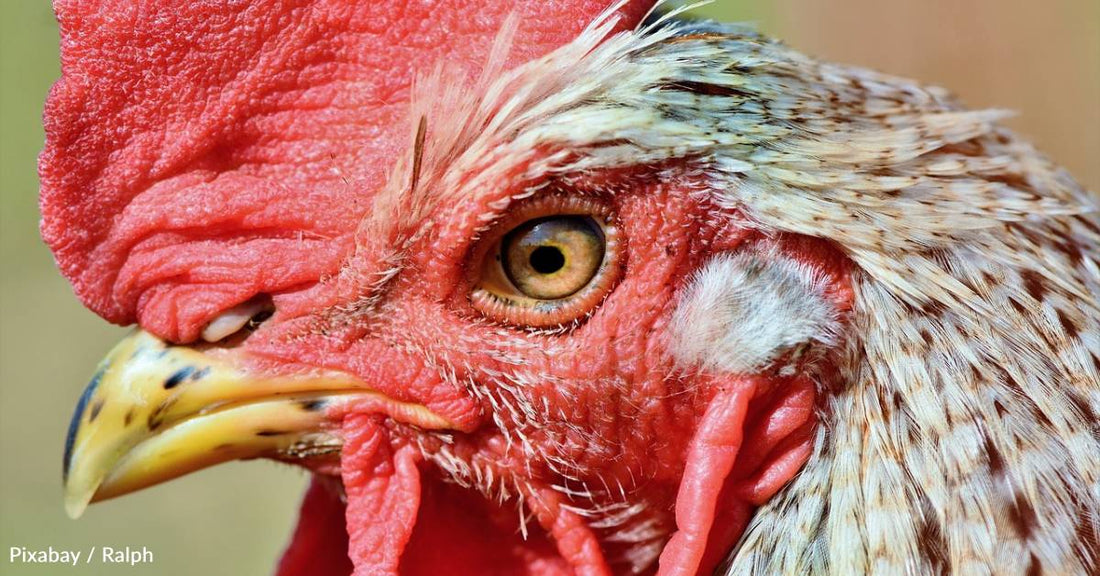Roosters Show Signs of Recognizing Their Own Reflections, Which Means They May Be Self-Aware
Michelle Milliken
When we look in the mirror, we sometimes wonder if that’s really us. I mean, have we really aged that much?! If you’re a rooster, though, you may have no issues recognizing your reflection.
Researchers at the Universities of Bonn and Bochun recently conducted a series of tests to figure out how self-aware roosters are. The team says they suspect this characteristic is more common in animals than is currently thought, and they believe that could be shown if it's tested in more species.
Sonja Hillemacher, doctoral student and the study’s first author, says, “The ability of animals to recognize themselves, and thus to have self-awareness, is a central question in behavioral research.”
To determine if this behavior is present in chickens, the team steered away from another self-awareness test that has been given to primates. This test involves putting a mark on the animal’s body and placing them in front of a mirror to see if they touch it, which should be a sign that they recognize the mark is on their own body. However, the researchers say this method isn’t entirely reliable and often produces false negatives.
This study’s approach used a natural chicken behavior to test self-awareness. When they see a predator that may pose a threat, chickens will often call to each other to warn them. If they’re alone, though, they won’t generally do this to avoid becoming prey. So, the researchers set roosters up in an enclosure, where they were either by themselves or with another rooster. The team then projected a bird of prey that was visible to the rooster, to see if they would issue a warning call. Afterward, they put the roosters in front of a mirror to see if they’d issue a call, thinking it was another chicken, or if they didn’t, as they may have recognized the reflection as themselves.
Overall, 58 roosters were involved, and each experiment was repeated three times with each rooster. In the experiment without the mirror, there were 77 danger calls issued when there were other chickens present, but only 17 when the roosters were by themselves. Meanwhile, in the mirror experiment, there were only 25 warnings out of all 174 trials.
Hillemacher says this is a sign that roosters don’t see their reflection as another chicken, which means they may have recognized their own reflection. However, the team stresses that more research is needed.
Going forward, the researchers say that more studies into self-awareness in animals could be key for animal protection and animal welfare policies.
You can read the whole study in PLOS One.




